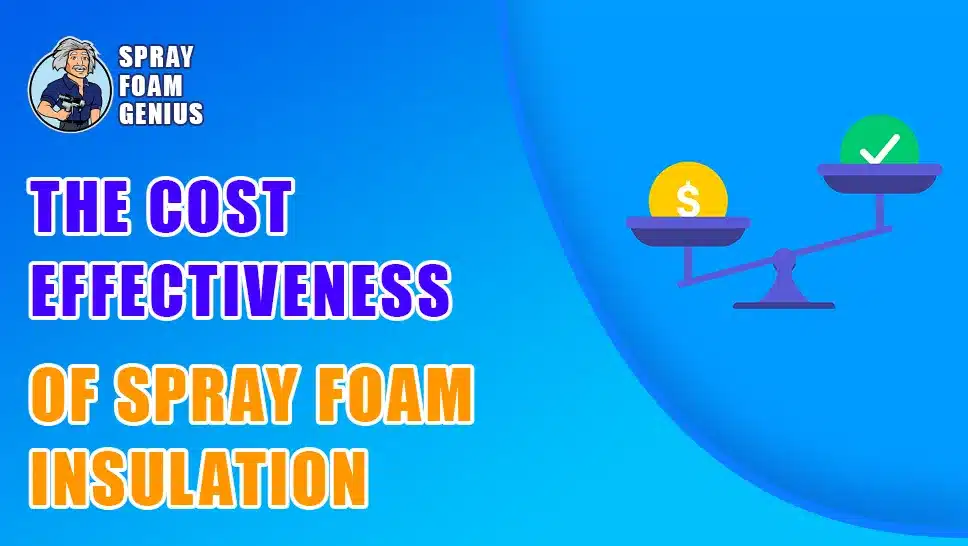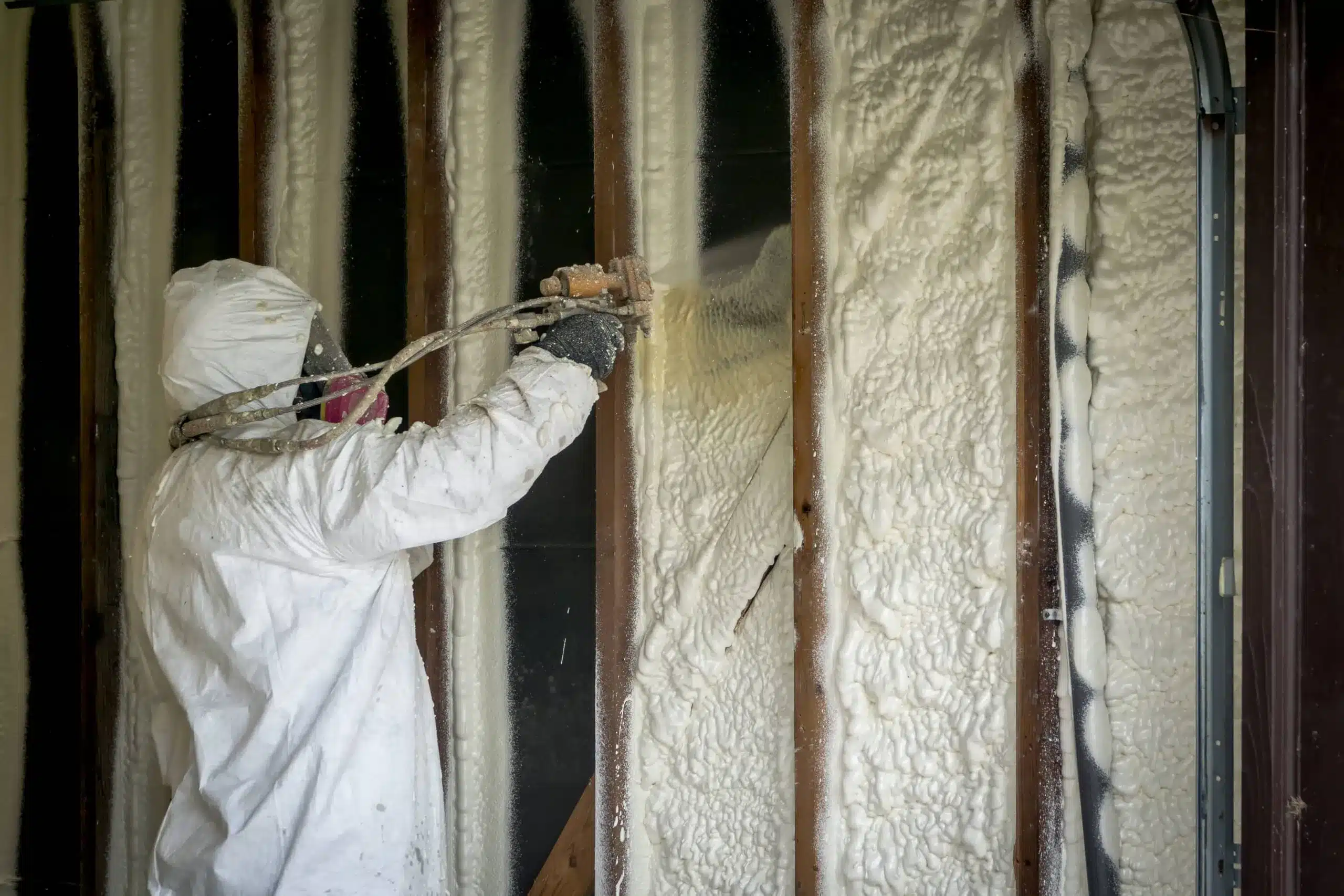
When it comes to insulation, homeowners and contractors alike are constantly weighing the options between different materials and methods. One of the most effective, yet sometimes overlooked, solutions is spray foam insulation. At Spray Foam Genius Marketing, we understand that contractors want to offer their clients the best value, which often means balancing upfront costs with long-term benefits. In this blog post, we’ll dive deep into the cost-effectiveness of spray foam insulation, analyzing why it’s an investment that pays off over time for both residential and commercial properties.
What is Spray Foam Insulation?
Spray foam insulation is a versatile and highly effective insulation material that can be applied to walls, roofs, and other surfaces. It comes in two primary types: open-cell and closed-cell.
- Open-cell spray foam is softer and more flexible, making it ideal for interior walls and hard-to-reach areas. It provides excellent soundproofing and insulation but is less dense than its closed-cell counterpart.
- Closed-cell spray foam is denser and more rigid, providing a higher R-value per inch, which translates to better thermal resistance. It’s ideal for both interior and exterior applications, including roofing, as it also acts as a moisture barrier.
Understanding the Upfront Costs

One of the first considerations when evaluating the cost-effectiveness of spray foam insulation is the upfront cost. Generally, spray foam insulation tends to be more expensive initially than traditional insulation materials like fiberglass or cellulose. The cost per square foot can vary depending on factors such as the type of spray foam, the thickness required, and the complexity of the installation.
For example:
- Open-cell spray foam typically costs between $0.44 and $0.65 per board foot.
- Closed-cell spray foam usually ranges from $1.00 to $1.50 per board foot.
This might seem steep compared to fiberglass insulation, which costs between $0.40 and $1.50 per square foot. However, when considering the overall performance and long-term savings that spray foam insulation offers, the initial investment becomes much more palatable.
The Long-Term Savings
The true cost-effectiveness of spray foam insulation becomes apparent when you consider the long-term savings it provides. Here’s how spray foam insulation can lead to significant savings over time:
1. Energy Efficiency
One of the biggest advantages of spray foam insulation is its superior energy efficiency. The high R-value of closed-cell spray foam (up to R-7 per inch) means that it provides better insulation compared to traditional materials. This translates into reduced heating and cooling costs, as your HVAC system won’t have to work as hard to maintain a comfortable temperature.
According to the U.S. Department of Energy, heating and cooling account for about 50% to 70% of the energy used in the average American home. By reducing air leaks and improving insulation, spray foam can lower energy bills by up to 20-50%, depending on the climate and existing insulation quality.
2. Air Sealing
Spray foam insulation doesn’t just insulate—it seals. Unlike fiberglass or cellulose, spray foam expands upon application, filling gaps and cracks that would otherwise allow air leakage. This creates an airtight seal, which is particularly important in areas like attics and basements where air leaks are common.
By sealing these leaks, spray foam insulation reduces drafts and prevents conditioned air from escaping, further enhancing energy efficiency and reducing utility bills. The airtight nature of spray foam can often eliminate the need for additional air-sealing measures, offering even more savings.
3. Durability and Longevity
Spray foam insulation is incredibly durable and long-lasting. While traditional insulation materials can degrade, settle, or shift over time, spray foam maintains its shape and insulating properties for decades. This means that once installed, it’s likely you won’t need to replace or add more insulation for the lifetime of the building, unlike fiberglass, which may need to be replaced every 10-15 years.
The long lifespan of spray foam reduces maintenance costs and eliminates the need for future investments in additional insulation, contributing to its overall cost-effectiveness.
4. Moisture Barrier
Closed-cell spray foam acts as a moisture barrier, protecting the structure of the building from water damage. This is particularly valuable in areas prone to high humidity or where moisture intrusion is a concern, such as basements and crawl spaces.
By preventing moisture buildup, spray foam insulation helps avoid costly issues like mold growth, wood rot, and structural damage. This not only preserves the integrity of the building but also contributes to a healthier indoor environment, potentially saving thousands in repair costs over time.
Environmental Benefits
Cost-effectiveness isn’t just about dollars and cents; it also includes the environmental impact. Spray foam insulation contributes to sustainability in several ways:
- Reduced Energy Consumption: By improving energy efficiency, spray foam insulation reduces the carbon footprint of a building. Lower energy usage means fewer greenhouse gas emissions, making it a greener choice for insulation.
- Material Efficiency: The ability of spray foam to expand and fill gaps means that less material is needed to achieve high insulation values. This reduces waste during installation and contributes to more efficient use of resources.
- Longevity: As previously mentioned, the long lifespan of spray foam means that it doesn’t need to be replaced as often as other insulation materials, leading to less waste in landfills over time.
Calculating Return on Investment (ROI)
When discussing cost-effectiveness, it’s essential to consider the return on investment (ROI). While the initial cost of spray foam insulation might be higher, the ROI can be significant due to the energy savings, durability, and reduced maintenance costs.
For example, let’s consider a typical residential application where spray foam insulation costs $4,000 upfront. If the homeowner saves $200 per month on energy bills due to improved insulation and sealing, that’s $2,400 saved per year. In less than two years, the savings will have paid for the cost of the insulation, and every year after that, the savings go straight to the homeowner’s pocket.
For commercial properties, the ROI can be even more substantial, especially in large buildings where heating and cooling costs are a significant portion of operating expenses.
The Cost of Not Choosing Spray Foam
It’s also important to consider the potential costs of not choosing spray foam insulation. Traditional insulation methods might have lower upfront costs, but they often come with hidden expenses, such as:
- Higher Energy Bills: Less effective insulation means higher ongoing costs for heating and cooling.
- Frequent Maintenance and Replacement: Traditional insulation materials may need to be replaced more frequently, adding to the long-term cost.
- Potential Damage from Moisture: Without the moisture barrier provided by closed-cell spray foam, buildings are more susceptible to damage that can lead to costly repairs.
Why Spray Foam Insulation is a Cost-Effective Choice
When considering the full picture—upfront costs, long-term savings, environmental benefits, and potential costs of not choosing spray foam—it’s clear that spray foam insulation is a cost-effective choice for both residential and commercial properties. The initial investment is quickly offset by substantial energy savings, reduced maintenance costs, and increased property value.
At Spray Foam Genius Marketing, we’re dedicated to helping spray foam contractors across the USA and Canada succeed by showcasing the true value of spray foam insulation to potential customers. We understand the industry, and we’re here to support your business with expert marketing, SEO, and lead generation services.
If you’re ready to boost your business by highlighting the cost-effectiveness of spray foam insulation to your clients, contact us today.
Call us at 877-840-FOAM for USA and 844-741-FOAM for Canada visit our website at sprayfoamgeniusmarketing.com, or email us at [email protected].
Let’s work together to grow your business and show your clients the true value of spray foam insulation.
- Social Media Marketing for Spray Foam Businesses: What Works in 2025? - February 6, 2025
- Best SEO Strategies for Spray Foam Insulation Contractors to Rank #1 on Google - February 6, 2025
- What is Spray Foam Insulation? Benefits and Applications - February 5, 2025

